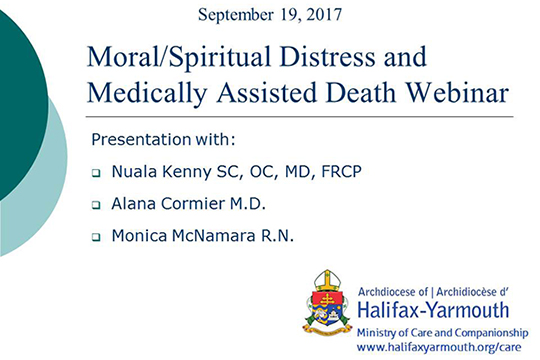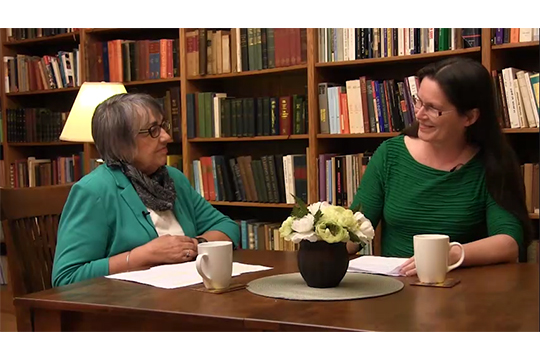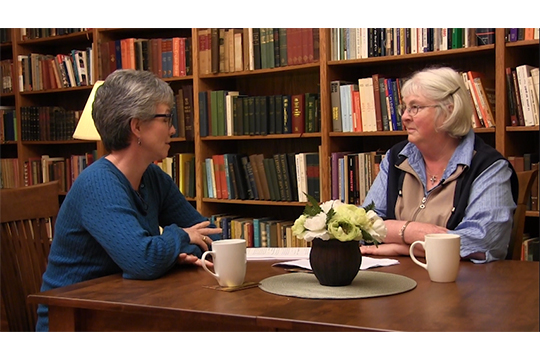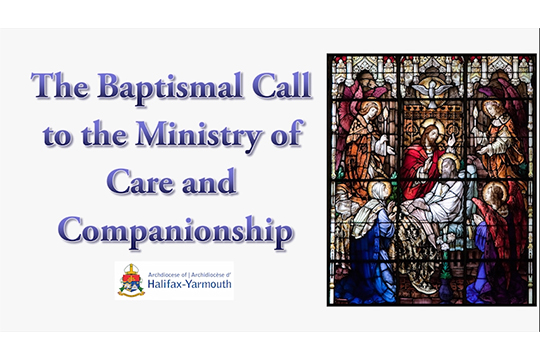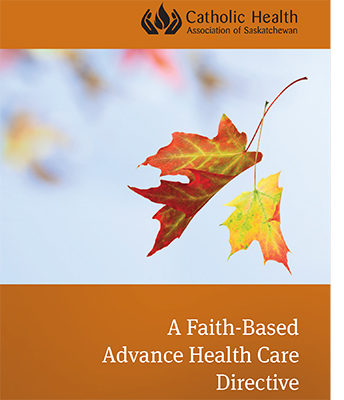
Ministry of Care and Companionship
as we care for the sick and comfort the dying.

Death of St. Joseph
Stain Glass Window, St. Mary’s Cathedral Basilica, Halifax, NS
The Most Reverend Douglas Crosby, O.M.I., Bishop of Hamilton and President of the Canadian Conference of Catholic Bishops (CCCB), has sent a submission this past October 19 to the Expert Panel on Options for a Legislative Response to Carter v. Canada. The submission includes references to Church teaching with pertinent citations from the Catechism of the Catholic Church, together with excerpts from the CCCB Plenary Assembly's statement on assisted suicide released on September 18, 2015, supplemented with further comments on the urgency and importance of palliative care.
Dear Minister,
Further to the ruling of the Supreme Court of Canada this past February 6, the Catholic Bishops of Canada welcomed the announcement you made in media interviews last month when you said that the federal government will soon reveal details of its public consultations regarding new legislation on assisted suicide. More recently, my brother Bishops and I also noted media reports a few weeks ago which quoted you as saying that the consultation, "while not formally announced, has begun." read more
“Accompany the Dying”: The Church's teaching on Euthanasia and Assisted Suicide
This past February, the Canadian Supreme Court struck down the legal ban on euthanasia in Canada. Legislation is expected within the next year surrounding introducing legal means of doctor-assisted suicide for Canadians. What does this mean for Canadian Catholics? What does the Church say about medical care, suffering, and death, and how can we be witnesses to our faith in light of this radical change to our culture?
On Friday, Feb 6 the Supreme Court of Canada struck down sections of the Criminal Code dealing with assisting in suicide. People everywhere have responded in one way or another to this change. The weekend of the ruling Archbishop Mancini shared his own thoughts and response in the his homily for the 5th Sunday in Ordinary Time:
“Sing praises to the Lord who heals the broken-hearted” – Psalm 147
Dear Friends,
Today the gospel shows us Jesus, the healer! He healed Peter’s mother-in-law, and he healed all those who were brought to him that evening. Why did he do that?
His actions are expressions of compassion and care for all human beings and especially for those who suffer. The responsorial psalm invites us to see and recognize the Lord’s passionate care and to be grateful for his attentiveness. As we gather today to celebrate the Eucharist, let us indeed sing and rejoice to the Lord – because he and only he can fully heal the broken-hearted.
Catholics are called by their faith to assist all those in need, particularly the poor, the suffering and the dying. Comforting the dying and accompanying them in love and solidarity has been considered by the Church since its beginning a principal expression of Christian mercy.
Helping someone commit suicide, however, is neither an act of justice or mercy, nor is it part of palliative care. The decision of the Supreme Court of Canada today does not change Catholic teaching. "[A]n act or omission which, of itself or by intention, causes death in order to eliminate suffering constitutes a murder gravely contrary to the dignity of the human person and to the respect due to the living God, our Creator." (Catechism of the Catholic Church, 2277).
The Way of the Cross Today Booklet
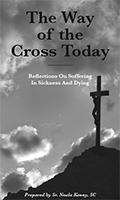
Reflections on Suffering in Sickness and Dying
Download Booklet version (Pdf)
or visit Salt & Light TV
for web version
Save
Save
Ministry of Care and Companionship Videos
Advanced Health Care Directive
Pastoral Letters on Physician Assisted Dying

* Pastoral Letter on Physician Assisted Dying (Eng/Fr)
By Archbishop Mancini - Link
(includes a download - FAQ on Physican Assisted Dying)
* A Pastoral Reflection on Medical Assistance in Dying
by the Atlantic Bishops
English
French
Catholic Funerals
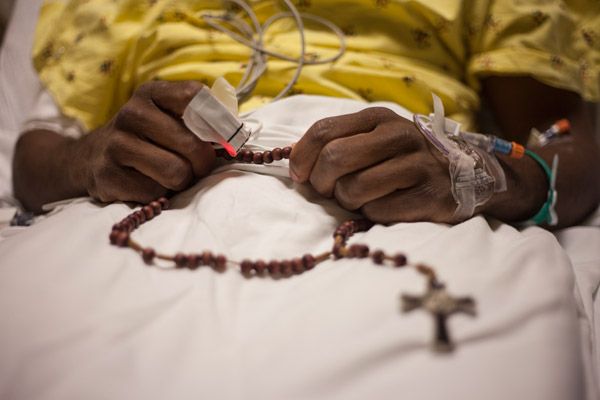
Prayer
Samples of prayers for specific moments, as well as contact info for a great variety of resources.

Services & Outreach
Descriptions and contact information for the services that are available throughout the archdiocese.

Resources
Contact info for information and materials to meet the great many needs, interests and circumstances.

